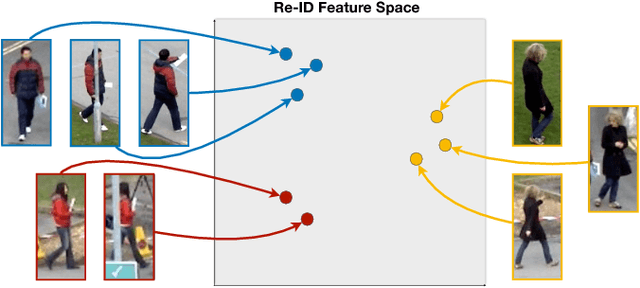Deep Person Re-identification for Probabilistic Data Association in Multiple Pedestrian Tracking
Paper and Code
Oct 19, 2018



We present a data association method for vision-based multiple pedestrian tracking, using deep convolutional features to distinguish between different people based on their appearances. These re-identification (re-ID) features are learned such that they are invariant to transformations such as rotation, translation, and changes in the background, allowing consistent identification of a pedestrian moving through a scene. We incorporate re-ID features into a general data association likelihood model for multiple person tracking, experimentally validate this model by using it to perform tracking in two evaluation video sequences, and examine the performance improvements gained as compared to several baseline approaches. Our results demonstrate that using deep person re-ID for data association greatly improves tracking robustness to challenges such as occlusions and path crossings.
 Add to Chrome
Add to Chrome Add to Firefox
Add to Firefox Add to Edge
Add to Edge